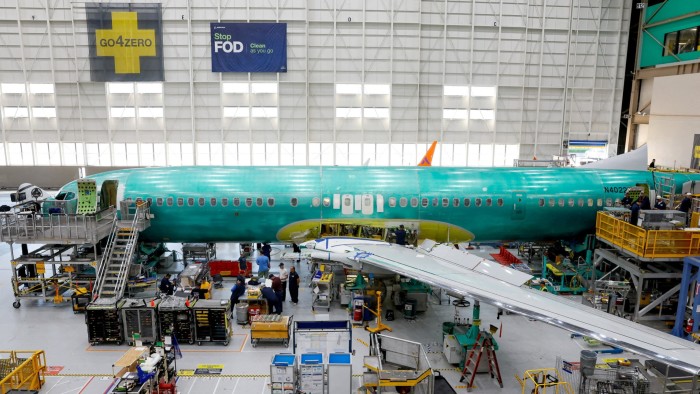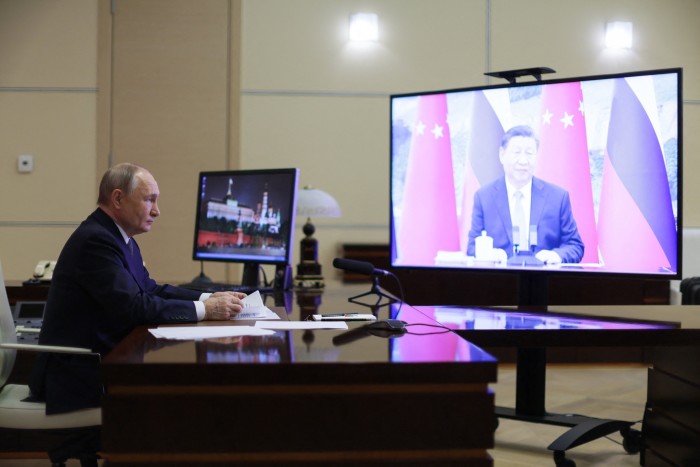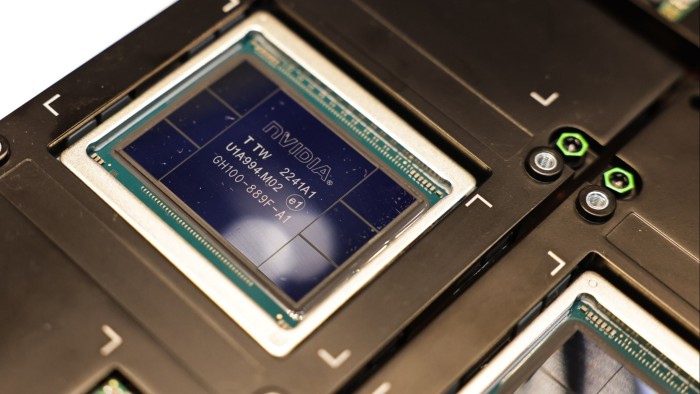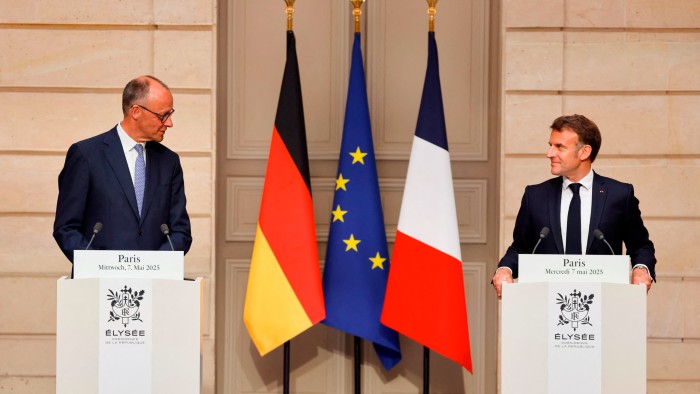EU eyes tariffs on Boeing jets in retaliation plan

Brussels plans to impose tariffs on Boeing aircraft as part of proposals for further retaliation if trade talks with Washington fail.
The European Commission, which runs EU trade policy, will include civilian aircraft on a list of about €100bn of annual US imports to be targeted, said two people familiar with the matter.
But the measures would only take effect if the EU does not make sufficient progress in reducing US tariffs, they said. They must first be approved by a weighted majority of member states.
US President Donald Trump on April 2 imposed a minimum additional tariff of 20 per cent on almost all exports from the EU as part of his so-called “reciprocal” measures. But he cut this to 10 per cent on April 9 for 90 days to allow time for talks.
US tariffs of 25 per cent on EU steel, aluminium and cars remain in place.
The EU has paused retaliatory tariffs on €21bn of US goods, including Harley-Davidson motorcycles, poultry and clothing until July 14 to help the negotiation process.
The next wave of tariffs, which would include aircraft and potentially chemical products, would probably apply from then too unless a deal was reached, officials said.
The list of proposed targets, expected to be published on Thursday, could still change, they cautioned.
The bloc imported about €18.3bn of aircraft, spacecraft and parts from the US in 2024, according to Eurostat.
Maroš Šefčovič, the EU trade commissioner leading talks, told the European parliament on Tuesday that 70 per cent of EU exports to the US now paid tariffs.
If the US followed through with sectoral tariffs on pharmaceuticals, semiconductors and other products, that figure would reach 97 per cent, or €549bn of goods. Based on current trade volumes, the US would collect more than €100bn in tariffs each year.
“We now need the US to show its readiness to make progress towards a fair and balanced solution,” he said.
“We are fully engaged in discussions with the US, as a negotiated solution remains our clear and preferred outcome.
“But if our talks with the US do not yield the necessary results, we will be ready for the alternative with the aim of restoring a level playing field” with “all options on the table”.
The aerospace industry has been rushing to adjust to Trump’s trade war, with higher costs already filtering down through its integrated supply chains.
Apart from an 18-month period in which levies were applied on Boeing and Airbus aircraft as part of a dispute over subsidies, the sector has largely operated without tariff barriers since 1979.
Its supply chains span the globe, with both Airbus and Boeing importing parts for new aircraft from various regions. Boeing, which sources parts for some of its aircraft from Italy and Japan, already faces higher import costs. US industry executives have been lobbying the White House, arguing for a return to the tariff-free environment.
Several airline executives have in recent weeks warned they would defer aircraft deliveries from Boeing or Airbus rather than pay tariffs.
Michael O’Leary, chief executive of Ryanair, a large Boeing customer, told the Financial Times last month that the airline would delay deliveries if they became more expensive because of the levies.
The US exports significantly more aerospace and defence goods than it imports. US aerospace and defence exports were close to $136bn globally in 2023, according to the industry’s trade body, the Aerospace Industries Association. The total value of US aerospace and defence imports was just under $22bn.
At an event in Paris on Tuesday, Airbus chief executive Guillaume Faury said he expected Europe to put in place “reciprocal” tariffs on aircraft, as it did during the dispute on subsidies five years ago. The US and EU suspended those tariffs in 2021.
Faury did not say whether he was calling for a specific policy response by the EU, but said that the effect of expected retaliatory tariffs on the US industry would be greater than that of Trump’s tariffs on Airbus. Companies, he added, faced a “lose-lose” situation.
“For Europeans and Americans, it’s really unfavourable but it is above all [unfavourable] for the Americans. That’s why I hope that, in time, things are going to be resolved. But it’s not the case yet.
“We’ve got a very high-performing transatlantic ecosystem that these tariffs are going to damage,” he added.
The commission, Boeing and Airbus declined to comment.








